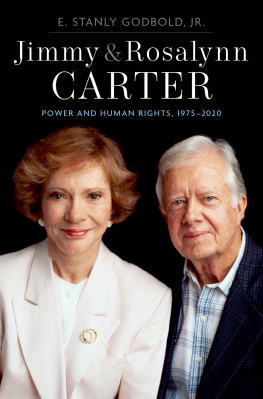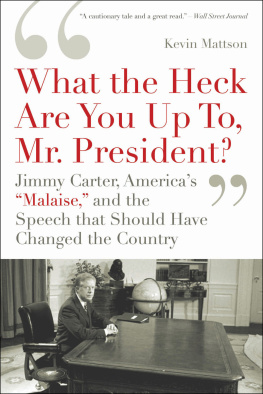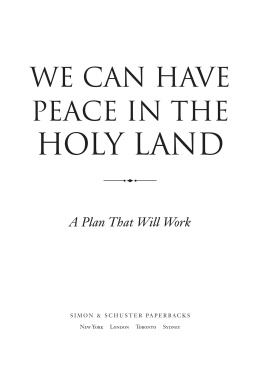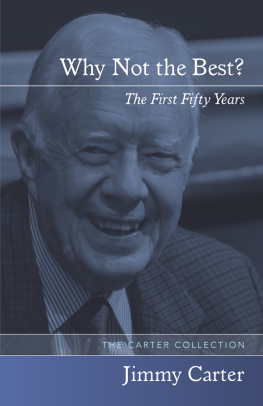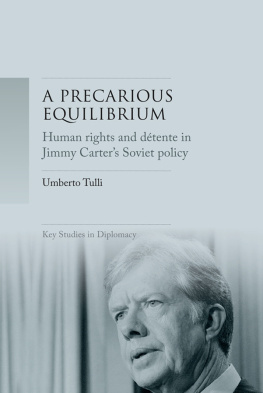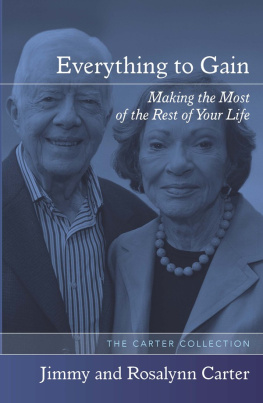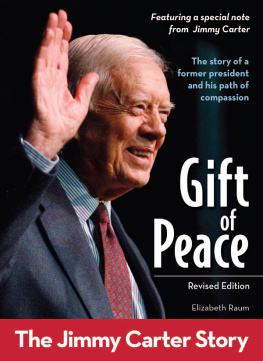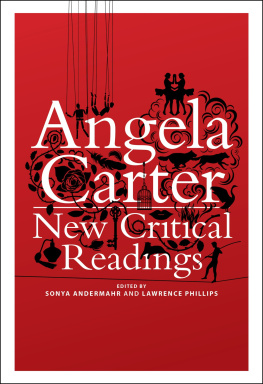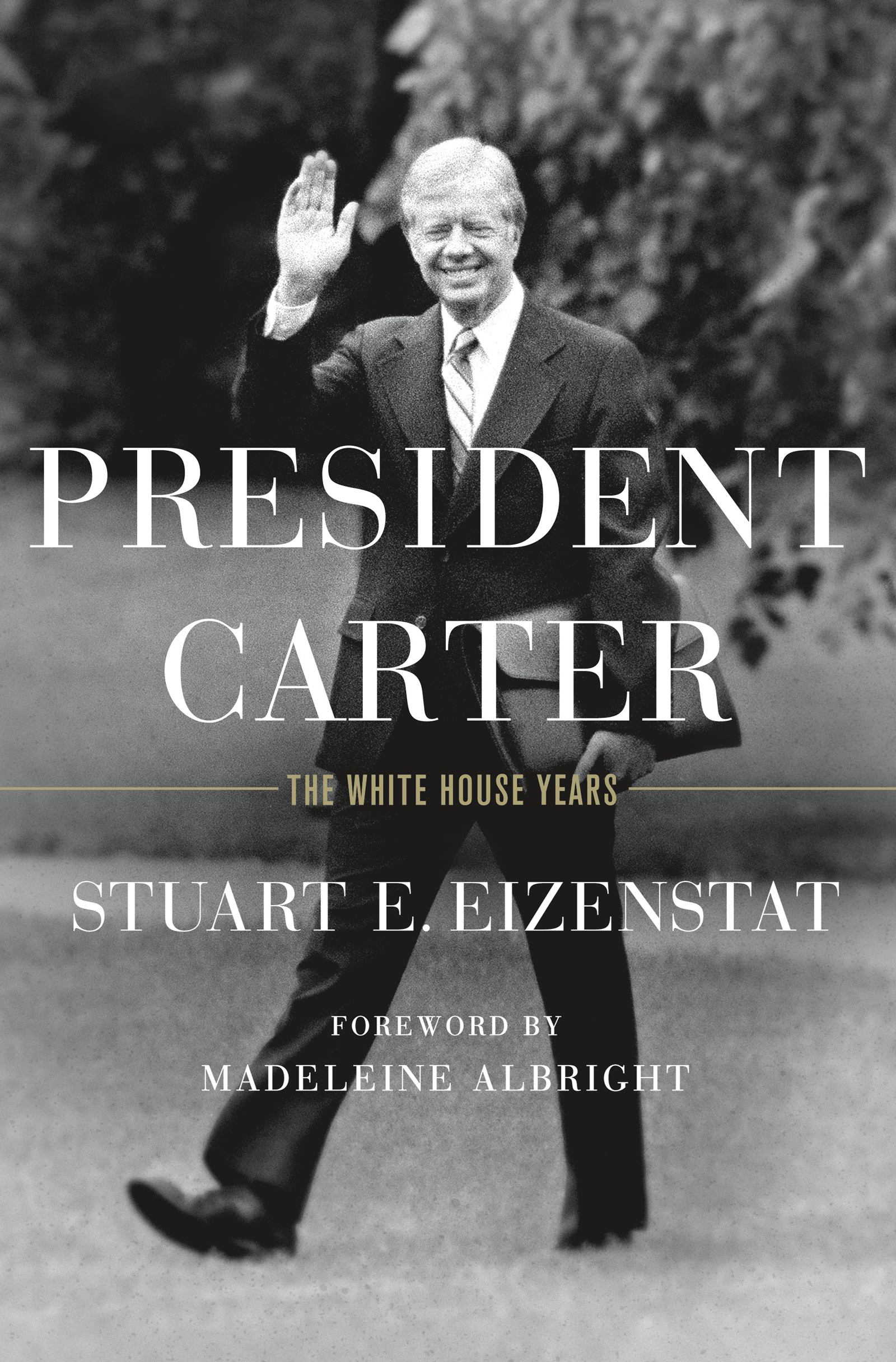Contents
Guide
Pagebreaks of the print version
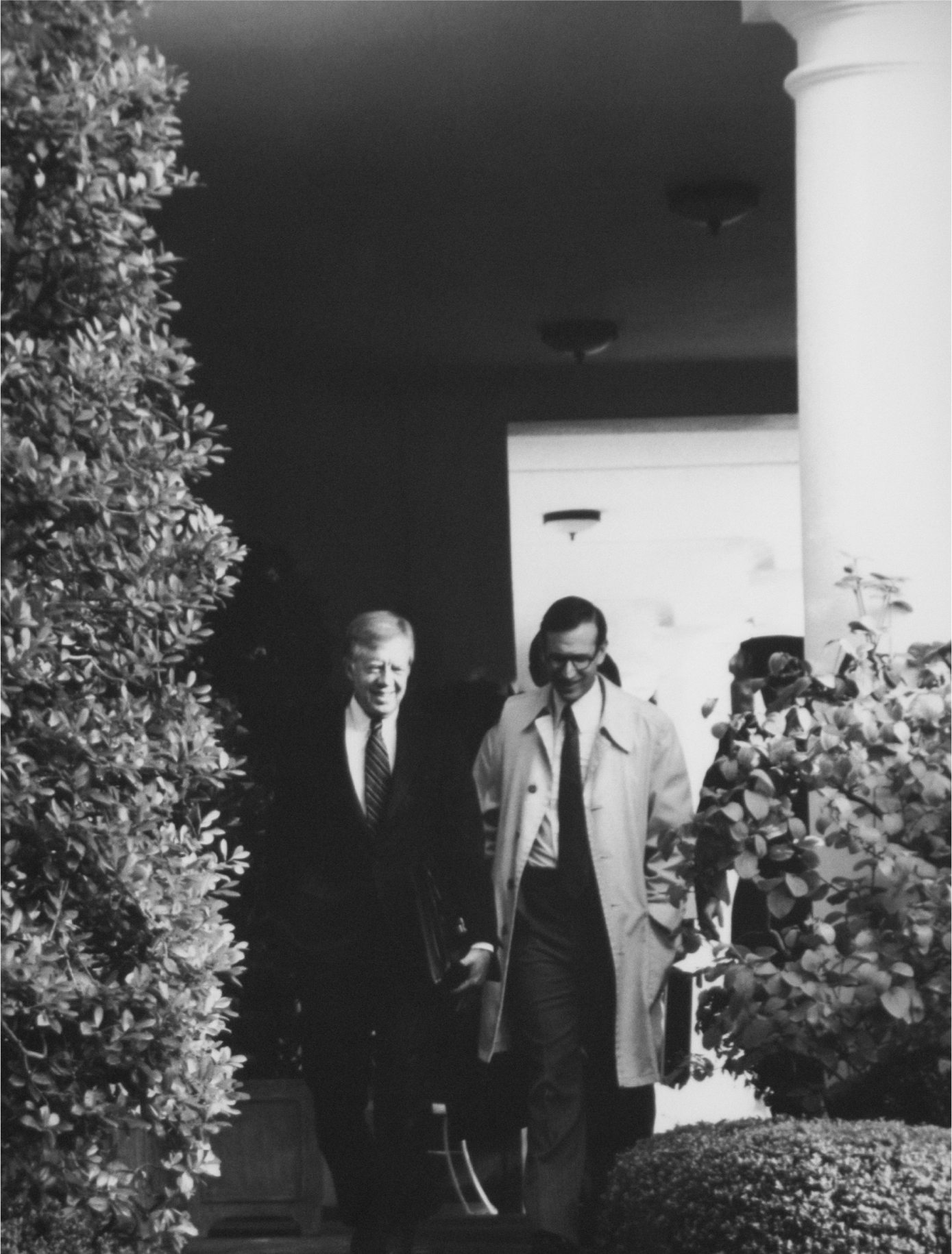

The author and publisher have provided this ebook to you for your personal use only. You may not make this ebook publicly available in any way. Copyright infringement is against the law. If you believe the copy of this ebook you are reading infringes on the authors copyright, please notify the publisher at:
us.macmillanusa.com/piracy.
To my wonderful loving wife, Fran, who, for forty-five years, including the challenging Carter White House years, was my selfless life partner, my closest adviser, and my most ardent supporter. She is deeply missed.
And to my parents, Leo and Sylvia, firstborn-generation Americans, who took great pride that their son could work in the White House.
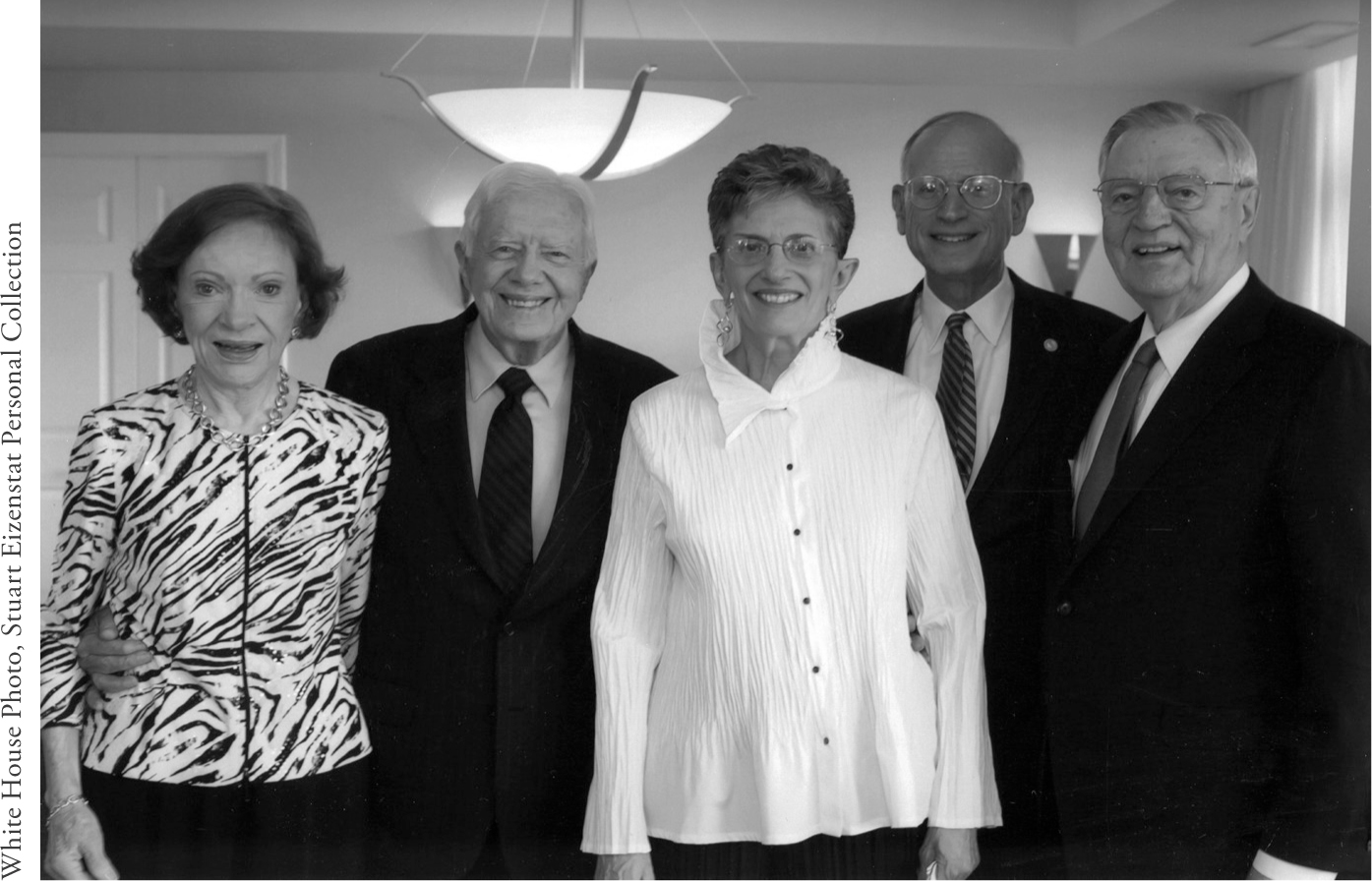
It is not the critic who counts: not the man who points out how the strong man stumbles or where the doer of deeds could have done better. The credit belongs to the man who is actually in the arena, whose face is marred by dust and sweat and blood, who strives valiantly, who errs and comes up short again and again, because there is no effort without shortcoming, but who knows the great enthusiasm, the great devotion, who spends himself for a worthy cause; who, at the best, knows, in the end, the triumph of high achievement, and who, at the worst, if he fails, at least he fails while daring greatly, so that his place shall never be with those cold and timid souls who knew neither victory nor defeat.
T HEODORE R OOSEVELT , C I TIZENSHIP IN A R EPUBLIC , S ORBONNE , P ARIS , A PRIL 23, 1910
I worked on the staff of Jimmy Carters National Security Council, and it was there that I first got to know Stuart Eizenstat. I have always admired his work ethic, his fine brain, and warm heartqualities that mirrored those of our boss. I have also always counted on Stu to tackle challenges with unimpeachable integrity and complete honesty. That is precisely how he approached this book. Forty years after Carters inauguration, the time is ripe for a reappraisal of his presidency. No one could be better suited to undertake such a project. Stu helped lead Carters historic 1976 campaign and served with distinction as his chief domestic policy adviser in the White House.
He does not argue that Jimmy Carter was a perfect president, nor does he overlook the shortcomings and faults of our thirty-ninth president. But Stu makes a compelling case that Carters four years in the White House deserve far more credit than he generally receives. Those who dismiss Jimmy Carters considerable accomplishments as president are doing a disservice to the historical record, and to the country.
This is particularly true in the realm of foreign policy. President Carter was idealistic; he wanted America to present a morally untainted image to the world. His national security adviser, Zbigniew Brzezinski, distrusted the Kremlin leaders and had no illusions about our struggle with the Soviet Union. But both agreed that we would be more successful in countering Communism if we made respect for human rights a fundamental tenet of our foreign policy and in our national interest.
Four months after taking office, Carter explained Americas new approach in a speech at Notre Dame, rejecting rigid moral maxims but declaring that the United States had so much faith in democratic methods that we should no longer have an inordinate fear of Communism; embrace dictators simply because they fought Communism; or adopt the flawed and erroneous principles and tactics of our adversaries, sometimes abandoning our own values for theirs. We have fought fire with fire, never thinking that fire is better quenched with water. This approach failed, with Vietnam the best example of its intellectual and moral poverty. President Carters commitment to human rights made me proud to serve in his administration. It also contributed mightily to the credibility of U.S. leadership and to the eventual expansion of democracy in Latin America, Asia, Africa, and Central Europe. By declaring Americas opposition to apartheid and brokering the historic Middle East Peace Accords at Camp David, Carter proved himself to be both a proactive and a principled president.
One foreign-policy accomplishment that remained elusive was a nuclear arms reduction agreement with the Soviet Union. As director of legislative relations for the National Security Council, I was deeply involved in the effort to obtain the Senates consent to the SALT II Treaty. We probably would have succeeded if on Christmas Day 1979 Soviet troops had not invaded Afghanistan. The Carter administration pushed back against this act of aggression economically by halting grain shipments and by banning the transfer of advanced technology. It responded politically by boycotting the Moscow Olympics and reinstating draft registration.
At the same time the administrations attention was equally focused on Iran, where militants backed by a revolutionary Islamic regime seized our embassy and held our diplomats hostage. President Carter was consumed with saving their lives, but the public quickly grew disenchanted; the press was brutal in its focus on the hostages; and all this fed into a feeling of national helplessness that was soon exploited by Ronald Reagan. He proved a far more formidable adversary than many Democrats predicted, and in my eternal optimism I thought we could beat him. I was wrong.
Although the verdict of the voters was clear, historys verdict on Carter is still being debated. He laid the foundations for conserving energy as a national policy and normalized relations with China. He poured out a cornucopia of good ideas, but they spilled out so swiftly and simultaneously that Carter obscured his own priorities, sending Congress more than it could handle, and foreign leaders and the American people more than they could absorb.
With the benefit of hindsight, public perceptions have begun to change, and with Stu Eizenstats important contribution, my hope is that those perceptions will continue to evolve so that Jimmy Carter will be recognized as the consequential and successful president that he was. I will always think of him as one of our most intelligent chief executives, who showed a fierce dedication to conflict prevention and individual human dignity, both during and after his term in office. He is a great man, and our country was lucky to have him as our leader.
Madeleine Albright, former Secretary of State
I never expected to participate in Jimmy Carters 1970 run for governor of Georgia. But I had contracted an incurable political bug at the University of North Carolina, participating in student government, writing articles on policy issues for the student newspaper, hearing President Kennedy challenge my generation to public service at a 1962 speech in Kenan Memorial Stadium, and in 1963, undergoing a transformative experience serving as a congressional intern in Washington in a university-sponsored program. During the summer of 1964 I worked on the political staff of Postmaster General John Gronouski, the first Polish American in a presidential cabinet. Under the direction of Robert L. Hardesty, I drafted speeches for President Johnsons election that were transliterated into phonetic Polish for him to wow his audiences with his nonexistent Polish skills. I did double duty working at the National Young Democrats of America. That earned me a trip to my first National Democratic Party Convention at Atlantic City, where my sole contribution was joining my fellow Young Democratsat the instruction of Lyndon Johnsons chief of staff, Marvin Watsonin occupying the seats of the Mississippi Democratic Party and, he emphasized, not leaving even to go to the bathroom until the Rules Committee decided whether to seat the all-white or the racially mixed Mississippi delegation.


